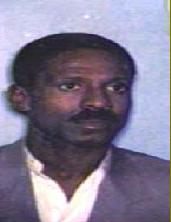Widgetized Section
Go to Admin » Appearance » Widgets » and move Gabfire Widget: Social into that MastheadOverlay zone
U.S. Wants To Reduce Haitian drug lord Jacques Ketant’s Sentence
Partager/Share this
MIAMI— A once-powerful Haitian drug lord imprisoned in the U.S. deserves half off his 27-year sentence because he provided key assistance in the convictions of at least a dozen other corrupt officials from his country and high-level cocaine traffickers, a federal prosecutor said Tuesday.
Assistant U.S. Attorney Lynn Kirkpatrick said 48-year-old Beaudouin “Jacques” Ketant’s cooperation
led to successful prosecutions of five high-ranking Haitian officials under former President Jean-Bertrand Aristide, including the Port-au-Prince police chief and the security chief at the capital city’s airport.
led to successful prosecutions of five high-ranking Haitian officials under former President Jean-Bertrand Aristide, including the Port-au-Prince police chief and the security chief at the capital city’s airport.
“These are people who were in positions of authority. To take them down was a success we are very proud of. And he was instrumental in that,” Kirkpatrick said at a hearing.
Chief U.S. District Judge Federico Moreno did not immediately rule, saying he wanted more information on what has become of Ketant’s assets in Haiti that included an $8 million mansion as well as valuable paintings, one of them by French impressionist Claude Monet. Ketant’s original sentence included forfeiture of $15 million in assets.
“Where is the money?” Moreno said.
Ketant attorney Ruben Oliva said his client has turned everything over to Haitian authorities.
“He’s got nothing left,” Oliva said. “It’s all in the government of Haiti’s possession. All of it.”


Ketant
Moreno also expressed some concern about a letter he received from a man who blames his mother’s 1997 killing in Miami on Ketant. Kirkpatrick said she had no information about any link and Oliva said Ketant had nothing to do with it. The judge did not make the letter public.
Ketant, who is serving his sentence at an Arkansas federal prison, is projected for release on Christmas Eve 2026. The proposed reduction of 13.5 years would make him eligible for release in a matter of months. Oliva said if released he would likely seek to live someplace other than Haiti because “there are a lot of people who are probably very upset with him.”
Ketant was already facing U.S. drug and money laundering charges when he was expelled from Haiti in 2003, put on a plane to Miami and arrested by U.S. drug agents. The expulsion followed a violent confrontation between Ketant and his bodyguards and officials at a swank private school attended by his son as well as children of high-ranking Haitian and U.S. embassy officials.
Kirkpatrick said Ketant began cooperating almost immediately, naming names of officials who were taking bribes, talking about his fellow traffickers and describing the inner workings of the Haitian cocaine system. Among others charged because of his information were a worker and an immigration official at Miami International Airport who helped drug couriers elude customs officials.
At his 2004 sentencing hearing, Ketant accused Aristide of being heavily involved in running what he called a “narco-country.” Aristide, however, was never charged and his U.S.-based attorneys have denied Ketant’s allegations. Aristide was ousted later that same year and spent seven years in exile, returning to Haiti last year.
Before he came to the U.S., prosecutors say Ketant’s organization moved some 41 tons of cocaine through Haiti to the U.S. from 1987 to 1996. At one point, according to court records, he fled Haiti for Miami and was able to escape arrest by disguising himself as a woman and returned to Haiti.
“Mr. Ketant was one of many drug traffickers that were allowed to operate in Haiti in exchange for large payments,” Oliva said.
Partager/Share this



























































